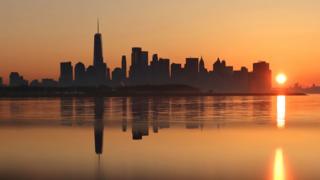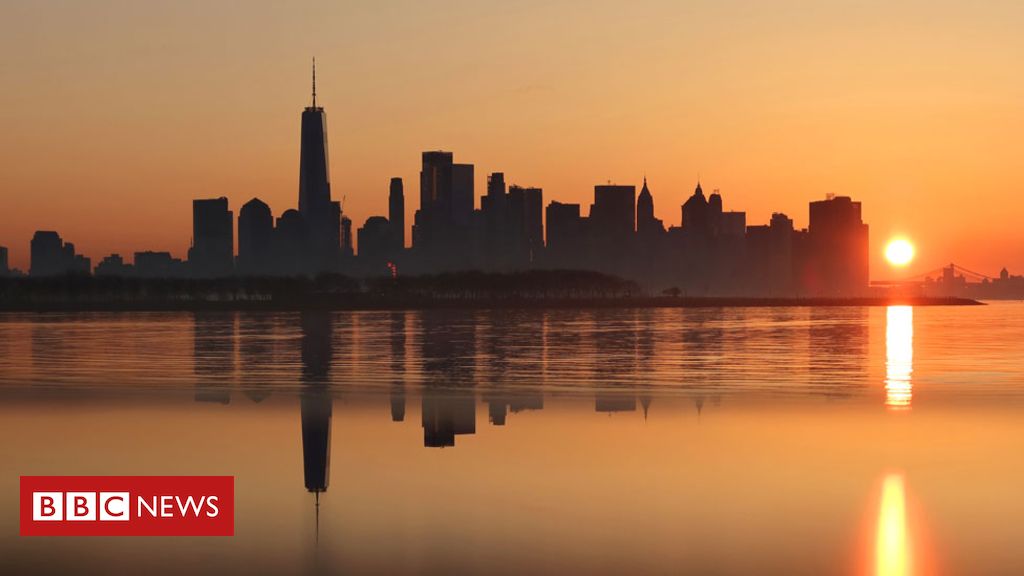 Image copyright
Image copyright
Getty Images
The headlines seemed to be crowding in on us. The coronavirus had reached American shores.
It had come to the outer suburbs of New York. There were cases in the Bronx, Brooklyn, Queens and Manhattan.
By now, the news was coming word of mouth. Someone had tested positive in our downtown office complex. A tenant in a neighbouring apartment building had been laid low. Our school was shutting. All the schools were shutting. The whole of New York was soon in lockdown.
Back then I remember thinking how different this was to stories of the past. Whether it was war or disaster, there was always a plane to take you away to safety; always a refuge at the end of a harrowing ordeal. With Covid-19, however, there was no plane; there was no refuge. In this planetary pandemic, the entire world was a trouble-spot.
Also this was the first time my family was living the same story of disaster that I had to cover. They were subject to the same risks and dangers. They felt the same tensions and concerns. And for us there was an extra layer of anxiety. My wife, Fleur, is seven months pregnant.
So some of those headlines now came like thunderbolts.
A top New York hospital was barring partners from being present at the birth. Other maternity wards were following suit. Delivery rooms were being placed in Covid isolation: women sequestered from their partners, partners sequestered from their newborns.
New life in the time of coronavirus. The magical realism of birth was becoming something altogether more dystopian.
In pre-pandemic times – how quickly we’ve adopted the language of the before and the after – many New Yorkers suffered from a paranoia known as FOMO. The fear of missing out. Those who can afford it want to dine in the most fashionable new restaurants. Go see the hottest new Broadway show. Attend the latest gallery opening.
But the virus was something that everyone wanted to miss out on – the talk of the town that nobody wanted to speak of from firsthand experience.
Image copyright
Getty Images
Usually it’s a battle to cross Times Square. Not any more
As the skies emptied of planes and we got used to seeing avenues without yellow cabs, the sound of the city changed. First we could hear the birds. Then they were drowned out by the sirens. Morning, noon and night. A ceaseless din. An unnerving din.
The city that never sleeps became the city that couldn’t sleep. And the fear was the ambulance outside your window would become an ambulance outside your door. To a city known for its bravado and life abundant, the coronavirus brought an overriding sense of fear.
Just as people became scared of paramedics, people became frightened of hospitals – especially those with the white refrigerated trailers ranked outside, the city’s mobile morgues that we hadn’t seen on the streets since the days after 9/11.
Then, in this home of New World modernity, we witnessed something that seemed grotesquely medieval. The bodies of the unclaimed, those who had no next of kin, placed in plain wooden boxes, ferried across to an island near the Bronx and buried in

